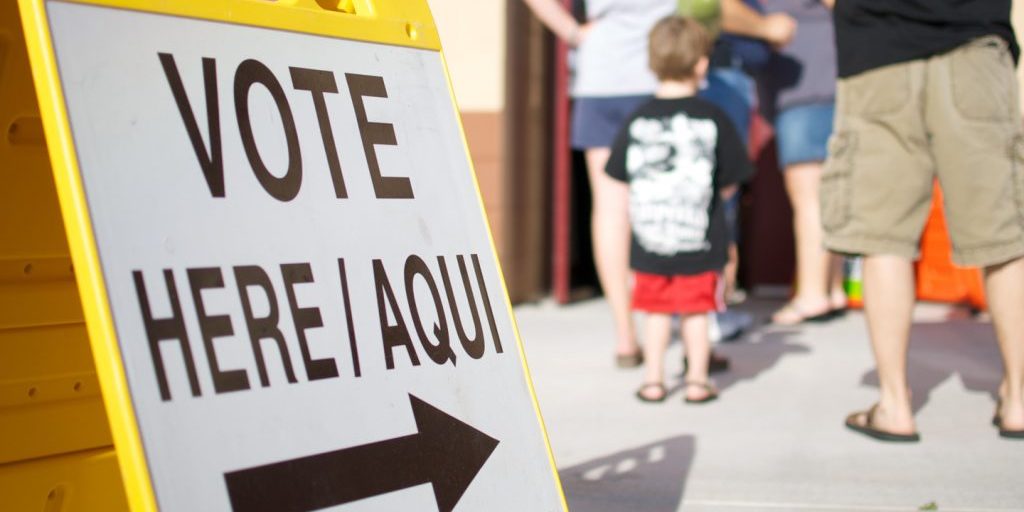Six Months After Election, Trump Still Grasps for Evidence of Voter Fraud
BY Roxanne Minott

LISTEN
President Donald Trump signed an executive order on May 11 that created a commission to perform a review of his questionable accusations of rampant voter fraud in the 2016 election, as well as accounts of voter suppression. He claims that voter fraud is the explanation for former Secretary of State Hillary Clinton’s win of the popular vote. She garnered almost three million more popular votes than Trump. The Presidential Advisory Commission on Election Integrity will be headed by Vice President Mike Pence and Kansas Secretary of State Kris Kobach, who has been very aggressive in his pursuit of accusations of voter fraud in Kansas.
The rest of the commission will consist of approximately 12 other election officials who represent both parties, according to White House deputy press secretary Sarah Huckabee Sanders. In a private meeting held on January 23 with leaders of Congress, President Trump alleged that between three million and five million undocumented immigrants cast illegal votes in the election last November. He claimed that all of them voted for former Secretary of State Hillary Clinton.
The White House has not yet revealed any documentation in support of the president’s claims. However, Trump has made an announcement regarding the issuance of an executive order relevant to voter fraud, and the vice president told Republicans that the administration would begin a full assessment of voter rolls.
The deputy press secretary stated that the commission will review policies and practices that strengthen or weaken the level of trust in the federal elections, including registrations that are incorrectly held, improper voting, deceptive voting registrations and voter suppression. The commission will address the 2016 general election as well as issues that have affected the system over the years.
Prior to its announcement, news of the start of the commission was met with a reaction of criticism from voter rights advocates and other organizations. Michael Waldman, president of the Brennan Center for Justice at the New York University School of Law, described the commission as a “sham and distraction,” claiming that the announcement was an effort by President Trump to detract attention from his recent termination of James B. Comey as director of the FBI. Waldman said Trump fired the person who was investigating an actual threat to the integrity of the election, and he established an investigation of an imagined threat.
Echoing his sentiments, president of the League of Women Voters, Chris Carson, said that the real objective of this effort is to rationalize Trump’s false claims of voter fraud in the 2016 elections. She said that the announcement was merely another distraction from the genuine issues, and she anticipates that any discoveries or suggestions made by the commission will only be used to make it more challenging for people to vote in future elections.
In its defense of the commission, the White House has directed attention to Kobach’s investigation of voter fraud cases in Kansas as proof that he stands behind the president’s allegations. He is the sole secretary of state that has the power to prosecute voter fraud, and he has been instrumental in developing some of the most stringent voter-ID requirements in the country. In February, Kobach was interviewed on Fox News, where he said there were 115 cases in Kansas of noncitizens who were on the voter rolls, or who were attempting to get on the voter rolls. In April, he won his first conviction of a noncitizen who voted illegally in a Kansas election. This marked his eighth conviction regarding voter fraud since he secured the power to pursue such cases in 2015.
Despite the president’s claims of voter fraud, a fact-check conducted by ABC News in January 2017 found that the claim of extreme voter fraud was contradicted by election officials throughout the nation. ABC News contacted officials in the 50 states and, in response, officials from 20 states said that voter fraud was not prevalent. No one from the other 30 states issued a response. The majority of the states replied that such fraud was “very” or “extremely” rare.
In three of the nation’s four most populated states (California, New York and Florida), election officials stated they did not find any instances of voter fraud in the election last year. Furthermore, the Brennan Center for Justice published a study that found that in 40 out of 42 jurisdictions that the researchers studied, there were no incidents of noncitizens voting in 2016.
LATEST STORIES



